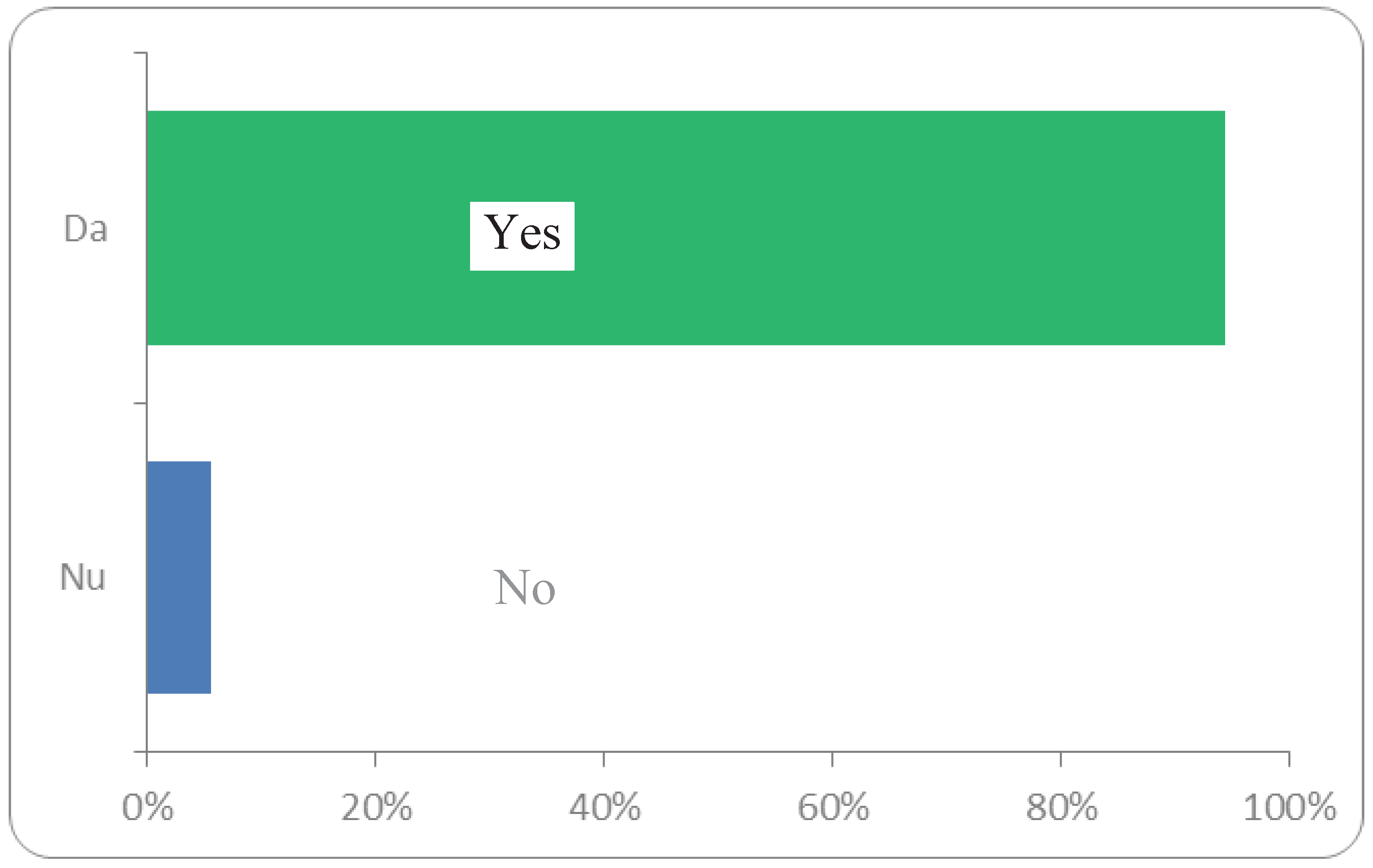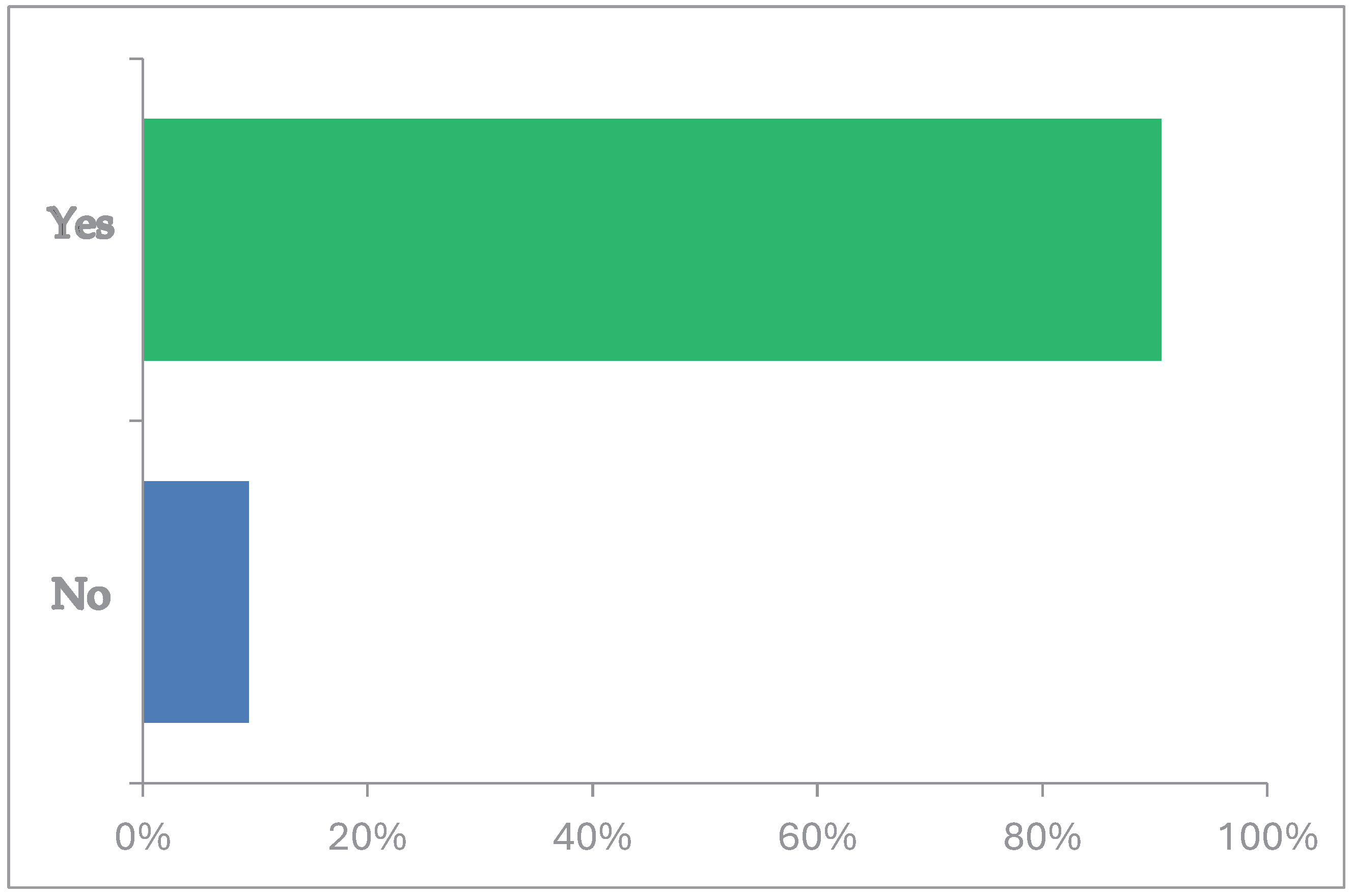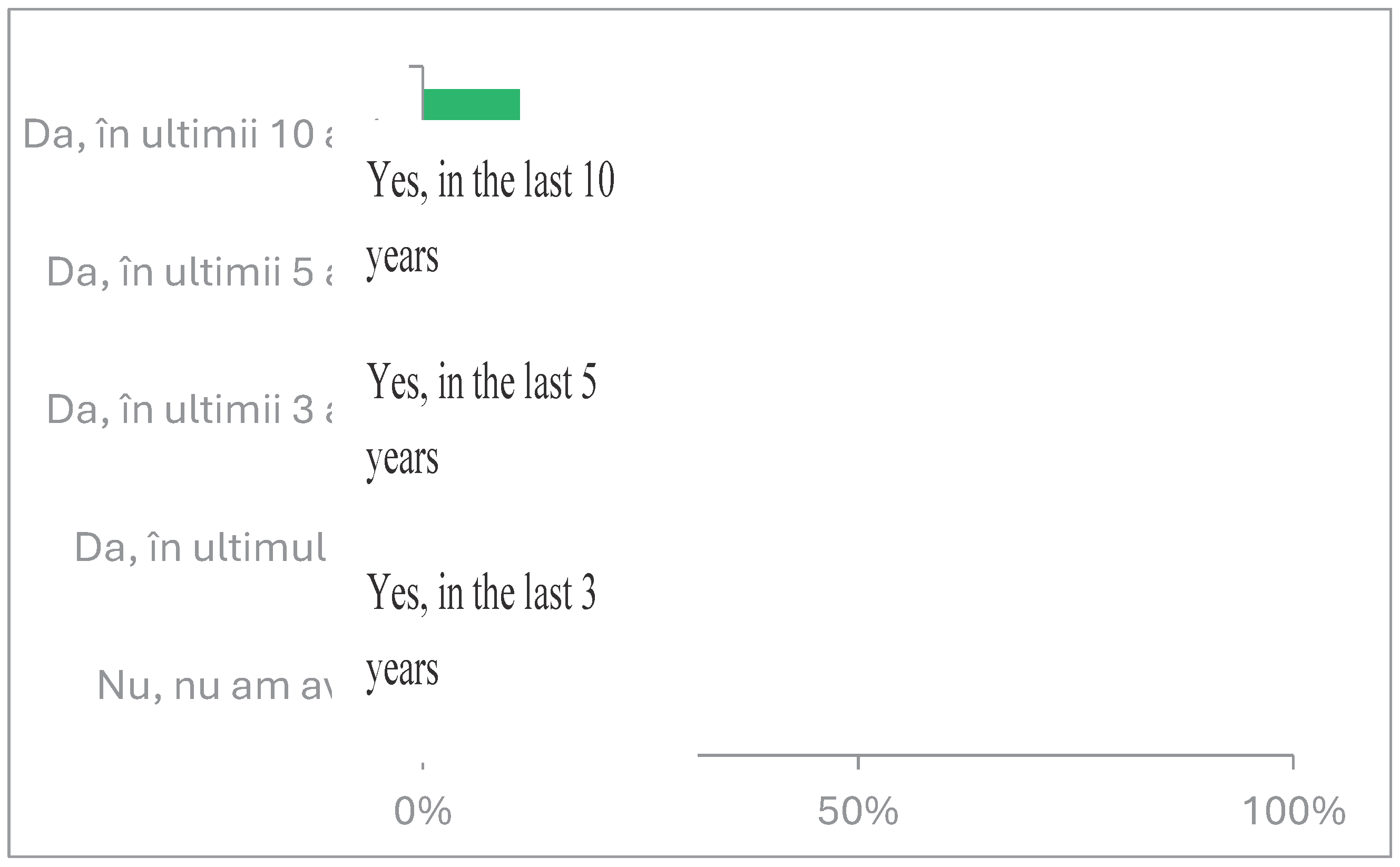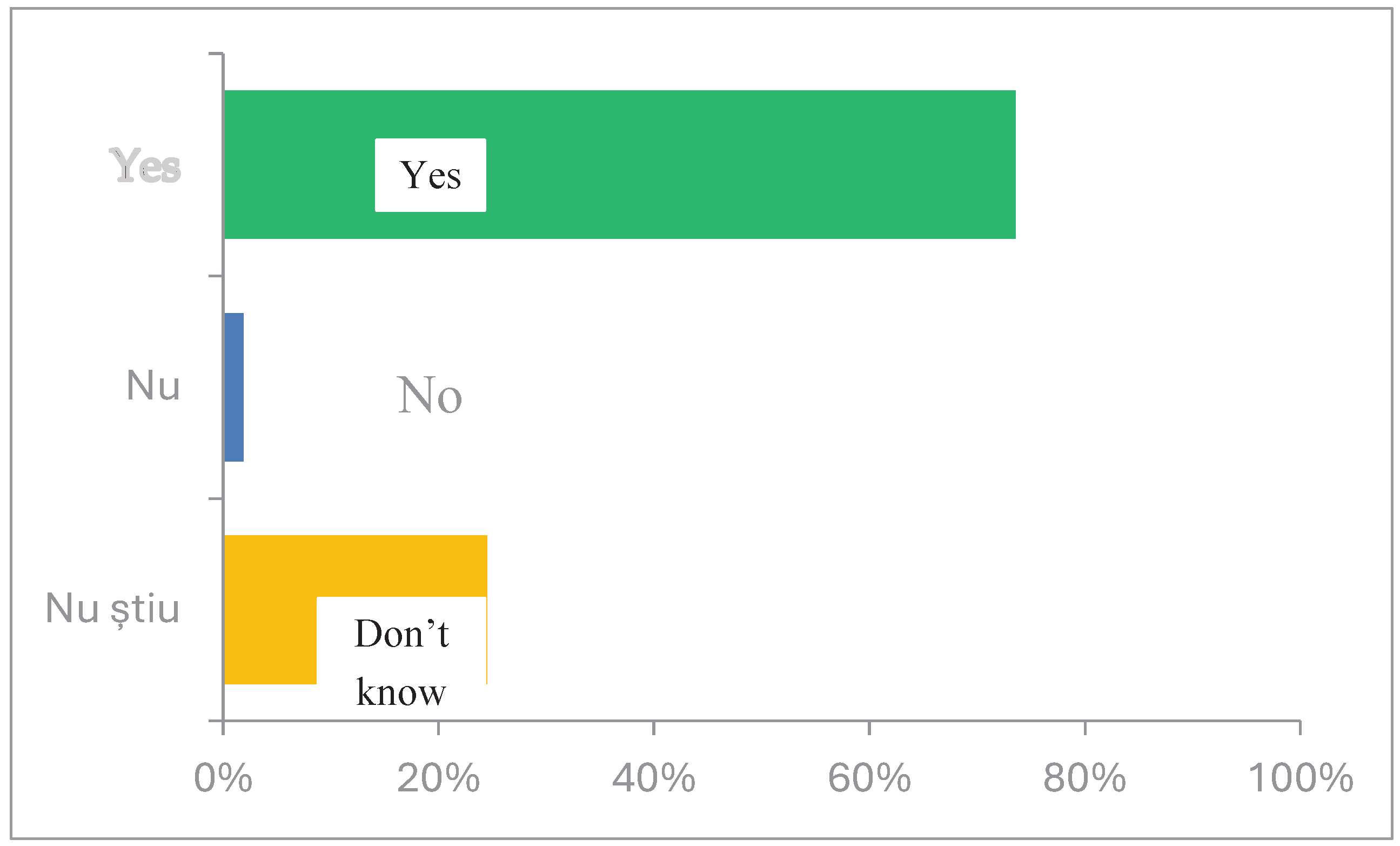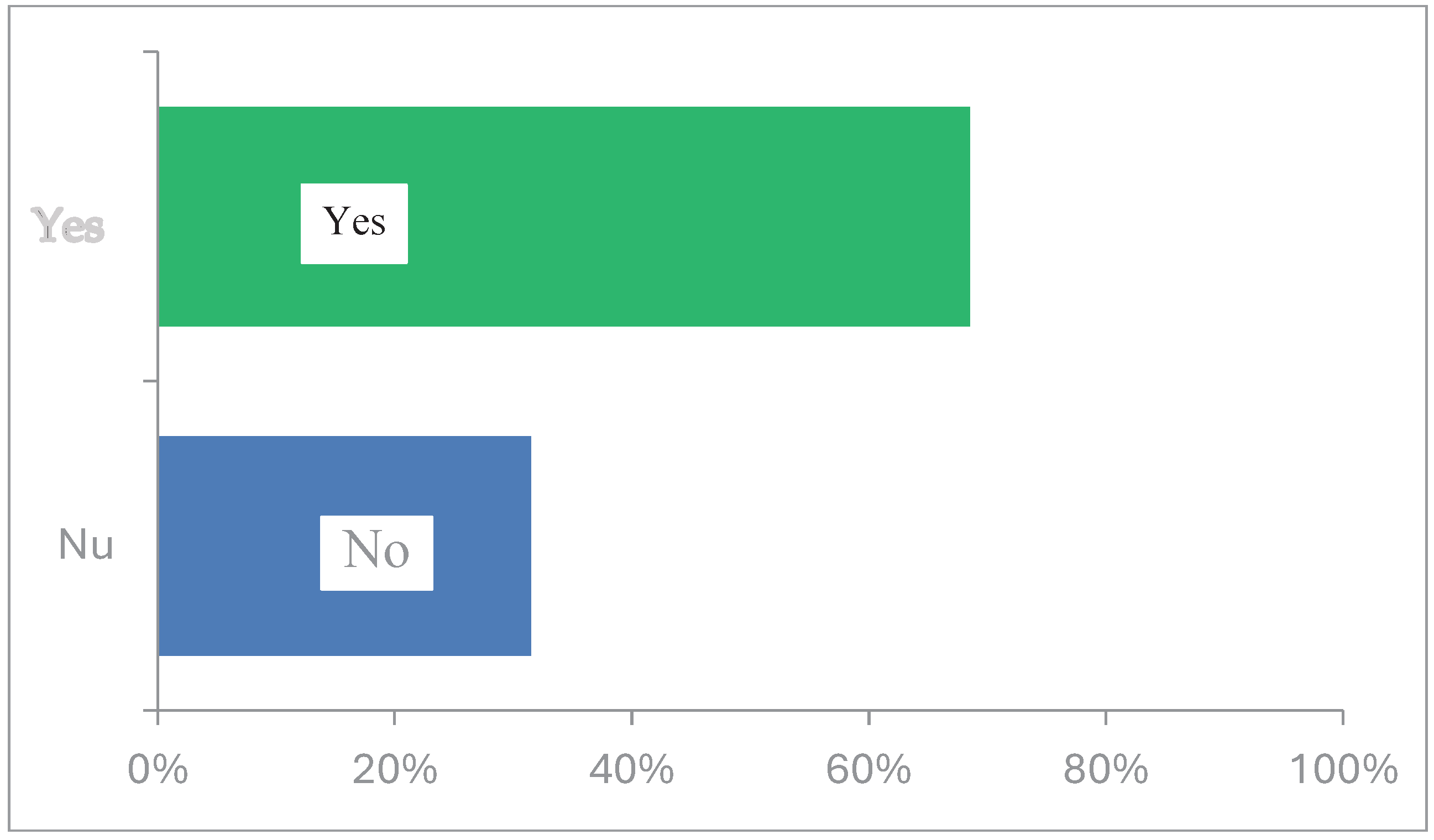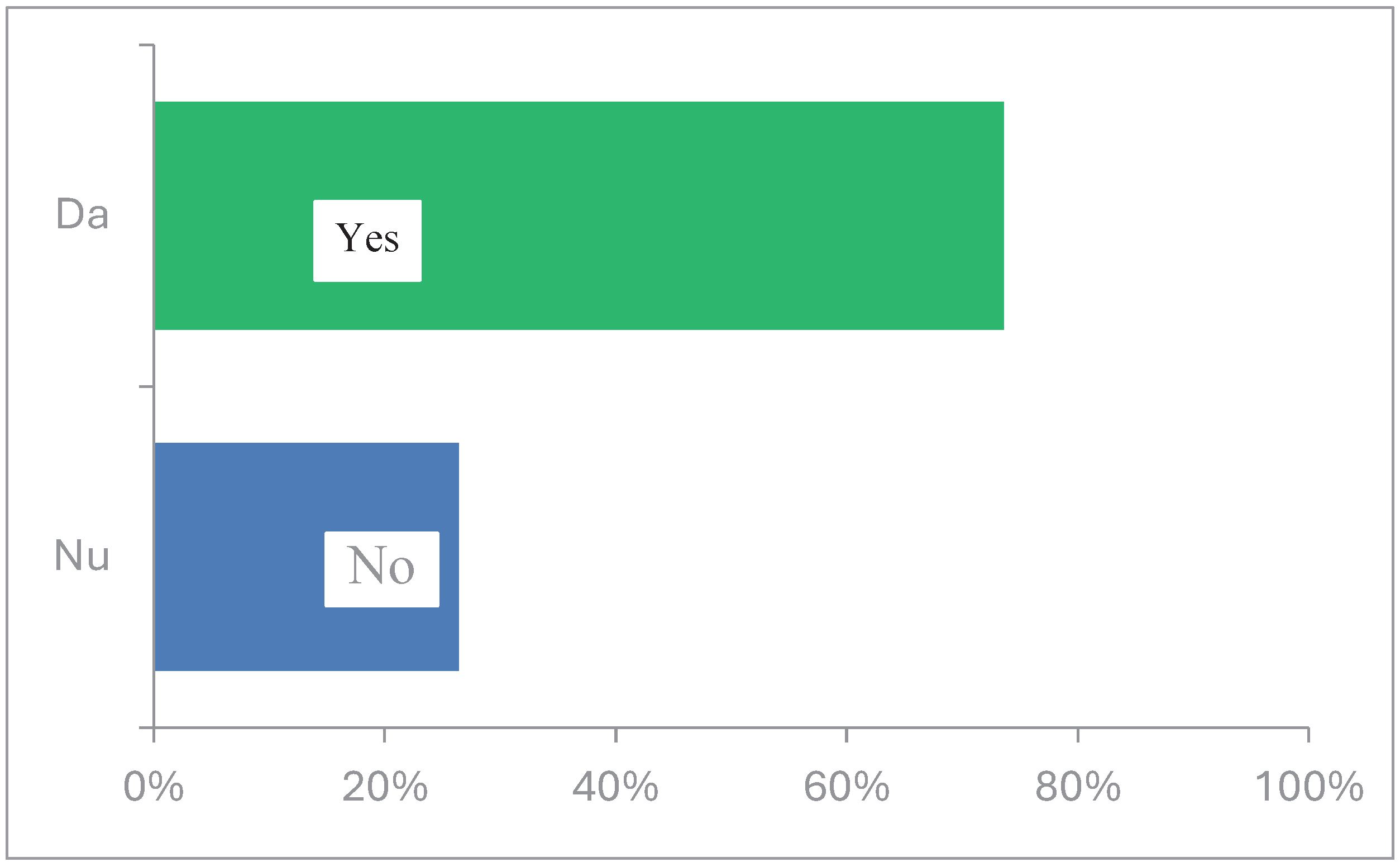1. Introduction
More and more organizations worldwide incorporate sustainability into their businesses considering the pressure of the market context. Some of the factors determining such behavior are represented by mandatory legislation or market expectations. Usually, market context has significant influences on corporate strategy. Other factors are internal, represented by certain market opportunities identified by the management or even awareness and commitment on the long-term advantages of the company operating in a sustainable community [
1].
The sustainability challenge is a recent development that carries substantial implications for the strategic decision-making within a company, as in most cases it necessitates a reassessment of existing management approaches. Being a rather broad notion, sustainability entails three pillars - environmental, social, and economic. This research highlights how numerous companies of different size, particularly in key industry sectors, have begun integrating sustainability into their strategies. However, it is not necessarily done in a uniform standardized way.
Authors [
2] state that “an obsession with short-term profits is contrary to the spirit of sustainability”. For sustainability initiatives to be effective, organizations must adopt a forward-looking approach.
Current legal requirements on sustainability reporting systems encourage organizations to look for tools facilitating integration of sustainability into their organizational processes. One way of doing that is by thorough implementation of recognized applicable standards. Being the result of a collective work, standards provide guidelines for efficient use of resources while maximizing the reliability of materials, products and services. They support the integration of socially and environmentally responsible behaviour in the management of plants and workplaces [
3].
The United Nations Economic Commission for Europe recognizes the value and impact of standards in supporting sustainability and achievement of the UN Agenda development goals. Their influence is acknowledged to have different shapes. Some standards are cross cutting and envisage interdisciplinary aspects applicable to all types of organizations. Others provide practical specifications on measurement, testing and manufacture or rules for safety use and performance thresholds. Standards support all the three dimensions of sustainability and therefore the need to be better understood and implemented is key for a sustainable-oriented organization.
The authors [
4] confirm that when two products possess comparable quality, the supplier with the superior sustainability performance is chosen.
“Among all sectors, agri-food is the largest contributor to environmental damage because of its excessive demand for energy, materials and water” [
5]. In this context, standardization offers commonly agreed tools for monitoring and reduce of emissions, waste management or energy use. Alternatively, for this particular sector standards provide quality specifications, testing methods, practices and management systems for food safety. All these create the necessary premises to adequately address customers’ interests and expectations within the whole value chain thus supporting the organization in pursuing sustainability related not only to its impact on the environment but also on economic and social frames.
The research focuses on the Romanian food sector as one with an important weight in the national economy. It has an important national dimension related to production and food processing but also an external one related to imports of raw material and export of processed products. A considerable portion of the industry’s market share is held by a few major corporations, while the remainder consists of small and micro enterprises. Due to the intricate nature and particular demands of the food sector, along with its challenges in terms of pursuing sustainability, this research investigates whether organizations operating in this sector are preoccupied with sustainability issues.
Can there be established a connection between implementation of standards in an organization and that organization’s pursuit for sustainability? Can we say, after having performed this exploratory research, that organizations using standards in their activity tend to have a more sustainability-oriented behaviour?
It may seem obvious that entities seeking to be compliant with the whole legal frame or to benchmark their activity to certain standards usually pursue sustainability. But it needs to be evidenced through research results.
This paper aims to present empirical evidence, derived from the findings of an exploratory research, that organizations pursuing sustainability in their businesses use standards. Even though academic research on the role of standards and standardization in achieving sustainability is currently limited and it may be too early to provide concrete impact data, our focus is to highlight the correlation between sustainability efforts and the adoption / use of standards. Likewise, entities implementing standards pursue sustainability or adopt a more sustainability-focused approach.
The remainder of this paper is structured as follows.
Section 2 focuses on a literature review, offering insights from published works on the connection between sustainability practices in the food industry and the use of standards. Following the review,
Section 3 outlines the research methodology.
Section 4 presents the research findings and their interpretations. Finally, the paper concludes with
Section 5, offering conclusions and suggestions for potential future research, followed by a list of references.
2. Literature Review
“Sustainability is about building a society in which a proper balance is created” [
6]. For businesses, this entails maintaining and enhancing economic growth, shareholder value, reputation, customer relations, ethical conduct, and the quality of products and services.
However, sustainability involves going beyond legal compliance. Companies often find success by adopting proactive approaches to sustainability, implementing innovative practices aimed at improving sustainability, such as enhancing manufacturing processes [
1].
“Sustainable development remains only a good intention, unless organizations make serious efforts to enforce it” [
7]. Decisions to integrate sustainability into company operations are rarely ad-hoc; they typically involve transformative changes and are strategically driven. “There are at least three critical success factors that a company needs to fulfill to achieve sustainable performance: leadership and vision, flexibility to change, and openness for engagement” [
6].
In the food industry, sustainability has emerged as a critical supply chain priority. Consumers now prioritize food safety and are increasingly seeking sustainably produced food products. Companies that meet these expectations address a customer base that is highly conscious of all aspects of sustainability, including economic, environmental, and social considerations throughout the food production and supply process [
8].
“The way food is produced, processed, transported and consumed has a great impact on whether sustainability is achieved throughout the whole food supply chain” [
9].
Sustainable consumption and production represent a key objective among the 17 sustainable development goals. It involves enhancing production efficiency and profitability while minimizing raw material usage, concurrently adding value to products while reducing pollution and waste. Every participant in the supply chain must play a role; otherwise, sustainable consumption cannot exist without sustainable production, and vice versa.
“When companies begin structuring their efforts towards sustainability, tools are required to support their decision-making process from the strategic to the operational levels” [
10]. An important type of such tool is represented by the recognized standards. Implementing an external standard is a means to guarantee that a company operates at a specific level of performance.
Authors [
11] reveal that numerous companies shape their sustainability initiatives based on national or international voluntary standards to conduct and validate their sustainability endeavors.
Authors [
12] confirm that “compliance with international standards can enhance producers’ capability in meeting several SDGs”. This is also echoed by authors [
13], who describe standards as “instruments to contribute to the SDGs.” The findings of these researchers suggest that development of standards addressing sustainable development goals would increase industry knowledge and set specific technical guidelines that extend beyond the conceptual frameworks of the SDGs.
Ironically, standards “are so pervasive that they have become taken for granted in our everyday environment, they may become completely embedded in everyday tools of use” [
14].
In the food industry, alongside traditional governance, alternative methods of regulation are emerging, including self-regulation, co-regulation, management-driven regulation, and various private governance systems facilitated by private standards, public-private partnerships, and similar mechanisms.
“Pro-proactivity for sustainability deals with the engagement of various stakeholders” [
8]. Collaboration between stakeholders from both public and private sectors is essential to collectively pursue common sustainability objectives.
In order to establish sustainable practices, coordination among stakeholders in the food industry is essential, ensuring that their interests are effectively represented and optimized. One way of doing that is through standardization. Some authors describe standards-setting bodies as intermediaries that drive transition towards sustainability.
Private regulations or governance through standards have a broad-reaching influence, impacting a diverse range of stakeholders worldwide, including producers, retailers, consumers, and suppliers.
In the present-day food sector, private companies have assumed the role of setting rules. For instance, large supermarket chains have established programs to guarantee a particular quality of food products by requiring suppliers to comply with specific standards [
15]. These practices suggest that private standards, although officially voluntary, tend to take on an obligatory role according to the authors.
Numerous studies highlighted the importance of standards and standardization in attaining the UN Sustainable Development Goals. Yet, development of recognized standards necessitates balanced involvement from governmental entities, businesses, and civil society organizations [
15].
“The role of self-regulatory activities involving different stakeholders becomes further relevant in business cases for sustainability” [
13].
As per the Standards Map provided by the International Trade Centre, there are currently more than 300 voluntary sustainability standards in operation across 600 product categories, spanning 15 industry sectors and present in 180 countries.
Former UN Secretary-General Ban Ki-moon stated that “partnerships with the private sector are crucial to achieving sustainable development” (United Nations, 2013). Achieving synergy between public and private sectors in sustainable development can be realized through policy coordination or aligning private governance priorities with public policy goals. [
17].
Most private retail food standards offer beneficial outcomes for food safety, traceability, and, to some extent, product quality. While they can help certain environmental targets, the degree of systematic and comprehensive impact falls short of ideal expectations. More concrete benefits should be gained by the sustainability-oriented organizations implementing standards.
Numerous private food standards utilize third-party certification to oversee and ensure compliance with the standards. In recent times, particularly in the food market, customers have heightened their expectations, demanding certification as evidence of compliance with quality assurance standards [
15].
As per the British Food Journal, notable certification schemes in the food industry include the British Retail Consortium (BRC), International Featured Standards Food (IFS Food), and Fair Trade International (FTI). Some views expressed in this journal show that certifications serve to demonstrate the safety of products offered in the market, thereby legitimizing their activity. Others say that certifications are important to communicate internally but also externally about the company’s commitment to sustainability.
Authors’ [
4] analysis on companies adopting a sustainability approach identify several stages in their path – conformance, initial, enthusiast, committed, advanced. According to the authors, firms that have integrated sustainability assessment into their corporate strategy consistently evaluate and enhance sustainability practices in a systematic manner. Whenever feasible, they also seek certification looking to enhancing efficiency, fostering environmental stewardship, and improving social standing, primarily in response to community expectations.
Indisputably, firms adopting sustainability dimensions have some implementation costs and are compelled to face different trade-offs. “Nevertheless, adoption of internal sustainable management practices seems to have a significant potential to transform companies into sustainable institutions” [
6].
3. Research Methodology
In order to find out whether there is a connection between implementation of standards, strategic approach to innovation and pursuing sustainability the authors conducted exploratory research to test which of the two elements: use of standards or applying innovation is directly linked to the organization’s pursuit towards sustainability. To base our research, we surveyed companies in the food industry in Romania. Given the significant role of the food industry in both national economies and the broader European Union economy, the findings are pertinent on a larger scale.
Three research questions were followed during the analysis:
Are companies operating in the Romanian food sector aware about sustainability issues?
Is sustainability part of companies’ development strategies?
Could there be a relationship between implementation of standards and sustainability pursuit?
Several additional questions targeted the way innovation is defined, incorporated in companies’ strategies and measured.
The exploratory research aiming at answering these questions was based on a questionnaire launched at the beginning of 2023 targeting 320 enterprises from the food industry in Romania. It comprised 26 questions focusing on how innovation, standards implementation and sustainability is addressed by different types of company in the Romanian food market. Responses were gathered over a three-month period until March 2023 from 54 companies along the entire sector, and statistical methods were employed to analyze the data.
4. Results and Discussion
Out of the 54 respondent companies, 31,5% are medium-sized (50 – 249 employees), 27,8% are large enterprises (over 250 employees), 22,2 are small enterprises (10 – 49 employees) and 18,5% are micro-enterprises with less than 10 employees. In terms of the annual turnover, 48% out of the respondent companies register more than 2 mil. Euro per year and the rest of 52% have less than 2 mil. Euro annually.
Sustainability awareness
From all the respondents, 94% precisely 50 enterprises confirmed that sustainability is one of their company’s concerns which validates the thesis that after a decade since this concept entered the market an important part of the enterprises is aware of the concept and even pursuit it their activity.
Is there any preoccupation to pursuit sustainability by / within the company?
Figure 1.
Sustainability pursuit. Source: authors’ data processing study.
Figure 1.
Sustainability pursuit. Source: authors’ data processing study.
Strategic approach of sustainability
More than being aware of sustainability 91% of the respondents, precisely 48 companies in the Romanian food sector do have sustainability integrated in their company’s strategic development.
Is sustainability part of the business strategy or other strategic documents of your company?
Figure 2.
Strategic approach of Sustainability. Source: authors’ data processing study.
Figure 2.
Strategic approach of Sustainability. Source: authors’ data processing study.
In addition to that, 74% (namely 40) of the companies have modified their strategies in the last 10 years considering embedding either innovation or sustainability. 28 respondents, i.e 52% out of all the answering companies implemented such changes in the last 3 years.
Have you implemented any modification of your company’s strategy related to innovation or sustainability in the recent period?
Figure 3.
Strategic approach of Sustainability. Source: authors’ data processing study.
Figure 3.
Strategic approach of Sustainability. Source: authors’ data processing study.
Even more important than that is the vision towards the future sustainable development of the companies in food sector. Considering that, 74% of the respondent companies have in mind planning developments or innovations oriented towards sustainability and nearly 26% do not know or don’t envisage any change related to sustainability issues.
Does your company plan any change or innovation towards sustainability in the next 5 years?
Figure 4.
Strategic approach of Sustainability. Source: authors’ data processing study.
Figure 4.
Strategic approach of Sustainability. Source: authors’ data processing study.
Standards implementation
As to the use of standards in the company, the majority of 51%, i.e., 27 respondents answered that they use standards seldom, whilst 6% of the respondents confirm that they never use standards. Together, the organizations not implementing standards and those using them seldom represent mainly micro and small enterprises. Companies answering that they often use standards in their activity – 43,4% are mainly medium and large enterprises.
Examples of the implemented system standards given by the respondents are: ISO 9001, ISO 22000, HACCP, ISO 140001, IFS and FSSC.
68,5% out of all the respondents confirmed the implementation of quality management standards in their organization, whilst 31,4% answered they did not implement any management system whatsoever. The latter is represented by micro and small enterprises in the food sector.
Has the organization implemented a quality management system or any other system supporting the management of quality in its processes?
Figure 5.
Standards implementation. Source: authors’ data processing study.
Figure 5.
Standards implementation. Source: authors’ data processing study.
The last question of the questionnaire tackles the possible relation that could be identified between the implementation of standards and the sustainability approach within a company. The majority of the respondents, precisely 74% answered that implementing a standardized system or a system implying standards implementation influences the organization’s approach towards sustainability. One possible explanation to this is the preliminary condition for every new standardization proposal to identify the extent to which the future standard will contribute to achieving sustainability. Thus, every new standard adopted at international level and implemented in a company helps that company in its pursuit towards sustainability.
Has the quality management system or any other implemented management system influenced the vision of the organization related to innovation or approach towards sustainability?
Figure 6.
Standards implementation.Source: author’s data processing study.
Figure 6.
Standards implementation.Source: author’s data processing study.
Data Analysis
Considering the answers collected, two hypotheses guided our exploratory research and oriented our data analysis:
H1 Organizations implementing standards are more sustainability-oriented than those not using standards in their activity.
H2 Organizations having embedded innovation in their strategy are more sustainability-oriented than those not having concerns for innovation.
Having processed the collected data with SPSS tool, here are the results obtained:
H1 Organizations implementing standards are more sustainability-oriented than those not using standards in their activity.
In order to verify this first hypothesis out of 54 companies / organizations included in this study, the analysis started identifying the interdependencies between companies’ categories, in terms of their size, and their orientation to implementation of standards. Examining the link between the two categorial variables that reflect standards implementation and companies’ category, considering their size, based on the contingency table (Crosstab) and the association coefficients (
Table 1) there is an association of medium intensity (value of association coefficients Phi, Cramer’s V and Contingency Coefficient is approximatively 0,5), statistically significant for a level of 5% significance (Approximate Significance = 0,007 < 0.05).
Based on the results of the association analysis, implementation of standards in the companies’ activity represents a predictor of the companies’ orientation towards innovation and sustainability. The value of the association coefficients (
Table 2) is statistically significant (Approximate Significance = 0,01 < 0.05) showing that between these two variables is a medium intensity relation.
Analysing the association between implementation of standards in the company’s activity and integration of sustainability in the business strategy (
Table 3) shows that the two variables are not independent, their relation being of reduced intensity (values of the coefficients of approx. 0,3), yet statistically significant (Approximate Significance = 0,036 < 0.05).
A similar result was obtained while investigation the association (
Table 4) of the variables relating to the implementation of a standardized management system and the vision of the organization towards innovative, sustainable approaches.
These above-detailed results confirm hypothesis H1, namely that organizations implementing standards are more sustainability-oriented than those not using standards in their activity.
Further on H2 was analyzed. According to H2 organizations having embedded innovation in their strategy are more sustainability-oriented than those not having concerns for innovation.
Organization’s category, determined by the annual turnover, influences significantly the degree of embedding innovation into the business strategy and, respectively, pursuit of sustainability (
Table 5).
Analysing the association between variables reflecting recent updates of the companies’ strategies relating to innovation and, respectively, pursuit of sustainability shows results that are not statistically significant (Approximate Significance > 0.23).
Based on these results hypothesis H2 according to which organizations having embedded innovation in their strategy are more sustainability-oriented than those not having concerns for innovation cannot be confirmed.
The result of the research, based on the answers received during the exploratory research in the Romanian food sector and the data analysis of the feedback received to six particular questions in the survey leads to the conclusion that organizations implementing standards have a more sustainability-oriented approach. It is to be acknowledged that the research is limited to the food industry and to a rather limited number of answers received. However, in Romania, food sector is very relevant in terms of annual turnover and the companies answering the survey are part of the biggest category considering their size. Also, the challenges and requirements for sustainability especially in the food sector are quite demanding considering the sector’s impact to environmental damage. Therefore, given the sector’s complexity the authors find the results of the research to be relevant at a bigger scale. Namely that, entities using and implementing standards in their activity are more likely to pursue sustainability than those not applying standards or any other quality benchmarks.
5. Conclusions
In this article we investigated to what extent innovation, standards and sustainability are incorporated in the business strategies by companies of an important economic sector. Based on this, we further analyzed two hypotheses. The first one relates to whether there is any relationship between implementing standards in the business activity and pursuing sustainability in the development of a company. The second one envisaged any possible link between innovation and sustainability-oriented approach of organizations in the same economic sector.
At this point academic research on the role of standards and standardization in achieving sustainability is currently limited, therefore our focus is on revealing the fact that those who pursue sustainability use standards. The outcome of the research revealed that organizations implementing standards are more sustainability-oriented than those not using standards in their activity. On the contrary, innovation approach is not directly linked to sustainability of the organizations. The main driver for innovation initiatives is creating new business opportunities and, ultimately, obtaining additional revenue rather than pursuing sustainable development. According to studies, innovation contributes between 6 and 30% of additional revenue, on average close to 20% [
18].
On the other hand, the level of companies’ commitment to sustainability is influenced by the size of the company, in terms of the number of employees and annual turnover, but also by contextual factors such as cultural elements, certification or solidarity schemes, etc. Awareness about standardization and implementing applicable standards is as much linked to the availability of resources, including skillful and competent staff.
“Implementation of the food quality standards is not an easy task for companies, especially if they come under the small business categories” [
19]. However, beyond the demonstrated benefits, authors agree that compliance with standards in food sector is an important criterion for selecting suppliers in public procurement.
Having evidence-based statement that entities implementing standards have a more sustainability-oriented approach, implementation of standards could be considered a prerequisite in pursuing sustainability. In this context, further research could be conducted identifying the concrete benefits gained by the implementation of particular standards in terms of measuring sustainability performance of companies.
Author Contributions
Conceptualization, Iuliana Zavatin (Chilea) and Ioana Maria Popescu (Iacobescu); methodology, Ioana Maria Popescu (Iacobescu).; validation, Rodica Pamfilie and Daniela-Ioana Manea; formal analysis, Daniela-Ioana Manea; investigation, Iuliana Zavatin (Chilea); resources, Iuliana Zavatin (Chilea); writing—original draft preparation, Iuliana Zavatin (Chilea); writing—review and editing, Iuliana Zavatin (Chilea); visualization, Rodica Lupu (Ștefănescu); supervision, Rodica Pamfilie. All authors have read and agreed to the published version of the manuscript.
Funding
This paper was co-financed by The Bucharest University of Economic Studies during the PhD program.
Conflicts of Interest
The authors declare no conflicts of interest.
References
- S. Schrettle, A. Hinz, M. Scherrer-Rathje, T. Friedli Turning sustainability into action: Explaining firms’
sustainability efforts and their impact on firm performance International Journal of Production Economics,
147 (2014), 73-84. [CrossRef]
- T. Dyllick, K. Hockerts Beyond the Business Case for Corporate Sustainability. Business Strategy & the Environment, 11 (2), (2002), 130-141. [CrossRef]
- UNECE Standards for the Sustainable Development Goals https://unece.org/sites/default/files/2021-
03/ECE_TRADE_444.pdf (accessed on 4th of January 2024).
- V. León-Bravo, F. Caniato Sustainability performance measurement in the food supply chain: Trade-offs,
institutional pressures, and contextual factors European Management Journal, Available online 17 April
2023. [CrossRef]
- B. Notarnicola, G. Tassielli, P.A. Renzulli, V. Castellani, S. Sala Environmental impacts of food consumption
in Europe Journal of Cleaner Production, 140 (2017), 753-765. [CrossRef]
- F. Székely, M. Knirsch Responsible leadership and corporate social responsibility: Metrics for sustainable
performance European Management Journal, 23 (6) (2005), 628-647. [CrossRef]
- R. Lueg, R. Radlach Managing sustainable development with management control systems: A literature
review European Management Journal, 34 (2) (2016), 158-171. [CrossRef]
- P. Beske, A. Land, S. Seuring Sustainable supply chain management practices and dynamic capabilities in
the food industry: a critical analysis of the literature International Journal of Production Economics, 152 (0)
(2014), 131-143. [CrossRef]
- K. Govindan Sustainable consumption and production in the food supply chain: A conceptual framework
International Journal of Production Economics, 195 (2018), 419-431. [CrossRef]
- M. Ivo de Carvalho, S Relvas, Ana. Barbosa-Póvoa A roadmap for sustainability performance assessment
in the context of Agri-Food Supply Chain Sustainable Production and Consumption Volume 34, November
2022, 565-585. [CrossRef]
- D’Amato, D. , Korhonen, J., Toppinen, A., 2019. Circular, green, and bio economy: how do companies in land-use intensive sectors align with sustainability concepts? Ecological Economics, 158, 116–133. [CrossRef]
- Kaplinsky, R. , Morris, M., 2018. Standards, regulation and sustainable development in a global value chain driven world. International Journal of Technological Learning Innovation and Development 10, 322–346. [CrossRef]
- K. Blind, P. Heß, 2023 Stakeholder perceptions of the role of standards for addressing the sustainable
development goals Sustainable Production and Consumption 37 (2023), 180–190. [CrossRef]
- M. Lampland, S.L. Star, 2009. Standards and their Stories: How Quantifying, Classifying, and Formalizing
Practices Shape Everyday Life. Cornell University Press, Ithaca, NY.
- D. Fuchs, A. Kalfagianni, T. Havinga, 2011. Actors in private food governance: the legitimacy of retail standards and multistakeholder initiatives with civil society participation. Agriculture and Human Values 28, 353–367. [CrossRef]
- https://www.standardsmap.org (accessed on 4th of January 2024).
- P. Schleifer, C. Brandi, R. Verma, K. Bissinger, M. Fiorini, 2022. Voluntary standards and the SDGs: mapping public-private complementarities for sustainable development, Earth System Governance 14, 100153. [CrossRef]
- I. M. Popescu (Iacobescu), I. Zavatin (Chilea), R. Pamfilie, S. Olaru, 2023.A SWOT analysis of the Romanian
food industry’s approach to innovation. BASIQ 2023 International Conference on New Trends in
Sustainable Business and Consumption.
- E. Radu, A. Dima, E. M. Dobrota, A. M. Badea, D. Madsen, C. Dobrin, S. Stanciu, 2023. Global trends and
research hotspots on HACCP and modern quality management systems in the food industryHeliyon 9
(2023) e18232, journal homepage: www.cell.com/heliyon,. [CrossRef]
|
Disclaimer/Publisher’s Note: The statements, opinions and data contained in all publications are solely those of the individual author(s) and contributor(s) and not of MDPI and/or the editor(s). MDPI and/or the editor(s) disclaim responsibility for any injury to people or property resulting from any ideas, methods, instructions or products referred to in the content. |
© 2024 by the authors. Licensee MDPI, Basel, Switzerland. This article is an open access article distributed under the terms and conditions of the Creative Commons Attribution (CC BY) license (http://creativecommons.org/licenses/by/4.0/).
